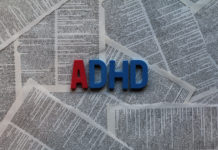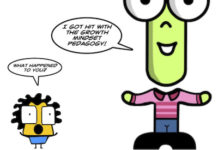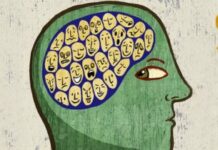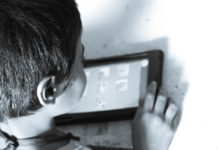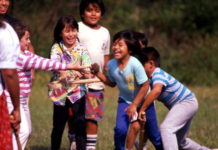Study Reveals Inconsistency in ADHD Diagnostic Determinations
Researchers compare differences between research and clinical diagnoses of ADHD and explore the consistency of clinical determinations over time
“Sugar May be as Damaging to the Brain as Extreme Stress or Abuse”
“The fact that drinking sugar or exposure to early life stress reduced the expression of genes critical for brain development and growth is of...
Not Your Great-Grandfather’s Psychoanalysis
From the Monitor on Psychology: One of the greatest misconceptions about psychoanalytic and psychodynamic therapy is that it has remained unchanged since Freud introduced it. In...
Sounds of Silence from Inside the Jail
I think about a healthy early infancy, about reaching out and being gently held and about the attachment bond that nourishes the mind, body and spirit as I watch the inmate sitting at the table in SuperMax, where the inmates are in isolation due to their high profile status or history of repeated violence inside the jail. I will not touch him and he will not reach out to me. He is a 3rd strike inmate, sentenced to 25 years to life, housed in SuperMax jail while he awaits his last appeal.
Schizophrenia Deconstructed
After a few weeks it became clear to me the complete lack of comprehension that I faced as a person claiming to have been cured of psychosis. Being a schizophrenic claiming to no longer suffer from schizophrenia only made me seem more schizophrenic due to the current culture of psychiatry.
Are Students Benefiting From the Growth Mindset Model?
Results from two meta-analyses reveal shortcomings with the growth mindset theory as applied in schools.
Foster Youths Meet Psychiatry: First – Do No pHarm
When a foster youth encounters a Psychiatrist, chances are high that s/he will get medicated. Traumatized foster youth are often prescribed powerful psychotropics due to exhibiting a wide variety of “normal reactions to abnormal events,” such as despair, agitation, anxiety and self-harm. The practice has been well documented; foster children are prescribed psychotropics at a 2.7 to 4.5 times higher rate than non-foster youth. The National Center for Youth Law aptly summarizes the problem as; too many (25% of foster youth medicated), too soon (300 children under the age of 5 in California are given psychotropics annually) too much (adult dosages) and for too long (no planning or reviews for possible discontinuation).
Why We’re a Culture of Addicts
From Uplift Connect: Addiction tends to be viewed through one of two lenses - as a genetic disease or a moral failure. According to Dr. Gabor...
The Connection Between Sleep, Exercise, Screen Time and Cognition in Childhood
Can current guidelines for sleep, exercise, and screen time in childhood be linked to positive cognitive outcomes?
The ACE Survey is Unusable Data
Do the effects of trauma matter more, or a person's ACE score? I think this is unusable data that harms people when you gather it. Here's why.
Belongingness Can Protect Against Impact of Trauma, Study Suggests
A new study explores feelings of belongingness as a protective factor for childhood trauma and adult mental health outcomes.
Race and Class Affect Teacher Perceptions of ADHD Medication Use
Study uncovers teachers’ attitudes surrounding ADHD medication use and examines the influence of race and social class on teacher beliefs.
Childhood Social Functioning Predicts Adult Schizophrenia Spectrum Disorder. Or Does It?
The authors of a recent study acknowledge that "social functioning deficits are a core component of schizophrenia spectrum disorders." [Emphasis added] With this in mind, it seems to me that the best and most parsimonious way to conceptualize the research finding is that children who have poor social skills will, in many cases, grow up to be adults with poor social skills. In particular, there seems to me no justification (other than psychiatric dogmatism) to conceptualize the matter in medical terms, and to impose a medical framework – "a marker of vulnerability" – on the data.
Benzos Fail to Prevent, May Increase PTSD
In a review of the evidence regarding benzodiazepines, researchers from the University of Michigan find that benzodiazepines used in the treatment of PTSD are...
Psychologists Advise How to Help and Minimize Harm Working With Migrants and Refugees
While well intentioned, providers and volunteers can do more harm than good at the border. The Global Psychosocial Network issues guidelines on how to work for the benefit of migrants and refugees.
Emotional Child Abuse Just as Harmful as Physical Abuse
Different types of child abuse have equivalent psychological effects, according to a study in JAMA Psychiatry. It has previously been assumed that emotional and verbal abuse could have different or less harmful impact on a child’s psychology than physical or sexual abuse, but research now suggests that these forms of abuse can be just as damaging.
Prenatal Prozac Alters Stress Response in Male Rats
Researchers from Belgium and the Netherlands, publishing online June 20 in Neuroscience, found that prenatal fluoxetine (Prozac) differentially affected the development of glucocorticoid receptors...
Comments on Jeffrey Lieberman and Ogi Ogas’ Wall Street Journal Article on the Genetics...
The March 3rd, 2016 edition of the Wall Street Journal featured an article by past President of the American Psychiatric Association (APA) Jeffrey Lieberman and his colleague, computational neuroscientist Ogi Ogas. The article was entitled “Genetics and Mental Illness—Let’s Not Get Carried Away.” In their piece, the authors started by expressing the belief that a recent study identified a gene that causes schizophrenia, and then discussed whether it is desirable or possible to remove allegedly pathological genes in the interest of creating a future “mentally perfect society.” The authors of the article, like many previous textbook authors, seem unfamiliar with the questionable “evidence” put forward by psychiatry as proof that its disorders are “highly heritable” In fact, DSM-5 Task Force Chair David Kupfer admitted that “we’re still waiting” for the discovery of “biological and genetic markers” for psychiatric disorders.
SSRIs in Pregnancy Linked to Early Depression in Children
A new study finds that prenatal exposure to antidepressant drugs, known as selective serotonin reuptake inhibitors or SSRIs, is associated with higher rates of...
Psychological Research Fails to Capture Human Diversity, Researchers Call for Action
Data demonstrate an overreliance of non-representative and non-diverse sampling biases in psychological research.
Child Abuse and Violence Survivors are Being Re-Traumatised
From The Independent: Recently, psychiatric patients used the hashtag #AbusedByServices to tweet about their experiences being re-traumatized by mental health services. The hashtag reflects the...
Study Finds Increasing Minimum Wage can Decrease Child Maltreatment
Increasing the minimum wage - even modestly - can lead to less cases of child abuse in the home.
“Mental Illness Mostly Caused by Life Events Not Genetics, Argue Psychologists”
According to psychologists, “mental illness is largely caused by social crises such as unemployment or childhood abuse.” If this is so, why are we...
Study Finds Heavy Metal Music Beneficial to Mental Health
A new study highlights the role heavy metal music plays in the mental health of adolescents facing adversity.
Study Explores Sexual and Intimate Partner Violence in College Women with Disabilities
A new study explores sexual violence and intimate partner violence in college women with mental health related disabilities.

